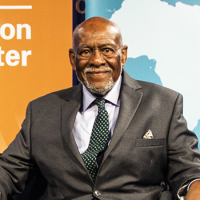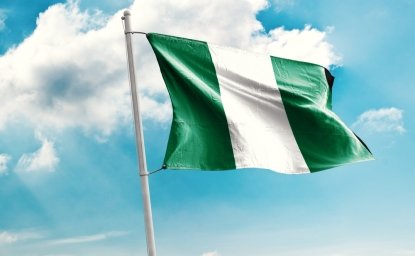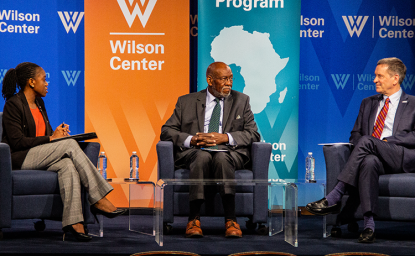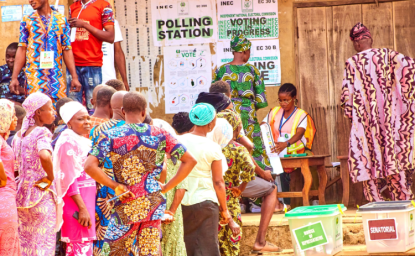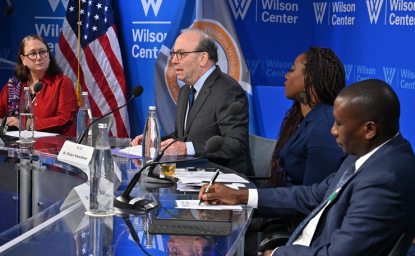
Much of the world’s attention is understandably taken up by headline-grabbing events such as Russia’s brutal war against Ukraine, the aftermath of earthquakes in Turkey and Syria, and skirmishes in the “great power competition.” However, the international community cannot afford to overlook elections—and importantly, democracy—across Africa this year. Case in point, Nigeria: Africa’s most populous country and one of the world’s largest democracies.
On February 25, Nigeria held its presidential election. Millions of Nigerians went to the polls for the opportunity to elect their new leader. At a time when the world is experiencing a democratic decline, Nigerians stood in line—sometimes for hours— for the chance to have their voices heard.
Unfortunately, the National Democratic Institute/International Republican Institute Election Observation Mission—for which we were both observers—declared that this election “fell short of Nigerian citizens’ reasonable expectations.” Citizens were disappointed with the electoral process, including those who supported the candidates who were declared winners. Among other issues, many polling stations opened late, and poll workers reported material shortages. Overall, as the IRI/NDI joint mission found, Nigeria’s Independent National Electoral Commission failed to live up to the high expectations it had created for itself. Three days after Election Day, Bola Tinubu—the candidate of the ruling All Progressives Congress—was declared president-elect. The main opposition parties have gone to court to challenge the results.
There is a lot of evidence that Africans prefer democratic systems of government to other forms. They also want accountable governance. Even with improvements over the last decade, governance overall has struggled, thus “flat lining” across the continent since 2019; a worrying development because it could affect the African Union’s Agenda 2063 goals. Recognized success for democracy in Nigeria—the biggest economy and largest democracy on the continent—has the potential to inspire democracy in neighboring countries and across the continent. Nigeria is one of the most influential countries in Africa—and the world. With projections to become the world’s third most populous country by 2050, it is imperative that a solidified democratic system is established in order to effectively support the people’s needs and promote progress throughout the continent.
US foreign policy toward Nigeria should focus on proactively strengthening democracy and governance. To help reach this goal, our direct engagement with African leaders and citizens is important—not because we have it perfectly figured out but because we know that democracies build better futures. US policy toward Nigeria should consistently advocate for strong civil society involvement, fortify political parties, implement checks and balances on government officials, and establish strong legislative systems. The US and other international partners must continue to support civil society and the institutions that support democratic principles, and in turn, strengthen democracy.
Although the logistical issues associated with this election disappointed many Nigerians, their continued hope for their country’s democratic system inspires us all. Elections are an important benchmark in democratic development, but the real work of building democratic institutions happens between elections. What happens over the next weeks and months in Nigeria will be vital. It is important that the president-elect prioritizes forming an inclusive government that considers the voices and concerns of all Nigerians.
On March 18, Nigerians will go back to the polls to vote for their state governors and houses of assembly, and there will be several important elections on the continent this year. The world should continue to watch the process closely, and ensure that lessons from the Nigeria presidential election are not just recorded but used to strengthen every election that lies ahead.
This is Africa's time, and there is no question about the enormous potential that exists. However, the continent can only achieve its full potential if African citizens have an opportunity to participate in a democratic process that allows their votes to be cast and their voices to be heard.
Ambassador Mark A. Green and Ambassador Johnnie Carson both served as observers to the recent Nigerian presidential election. To learn more, watch "Democracy and Governance in Africa: A Look at Elections in Nigeria and Across the Continent" featuring Ambassador Mark A. Green, Ambassador Johnnie Carson, and Oge Onubogu here.
Authors

